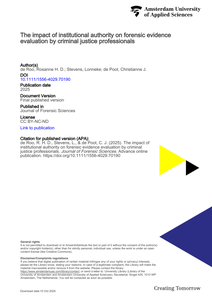This study tries to understand the power of knowledge within collaborative care networks to provide insights for designing successful collaboration within care networks by combining intersectionality and epistemic (in)justice. Becoming an informal carer for someone with an acquired brain injury (ABI) causes a dramatic disruption of daily life. Collaboration between professionals and carers with a migration background may result in unjust and unfair situations within care networks. Carer experiences are shaped by aspects of diversity which are subject to power structures and processes of social (in)justice in care networks. In this study, intersectionality was used to both generate complex in-depth insights into the different active layers of carer experiences and focus on within-group differences. Intersectionality was combined with the theoretical concept of epistemic (in)justice to unravel underlying dynamics in collaborative care networks contributing to the understanding that carers with a migration background are often not seen as ‘knowers of reality.’ This qualitative study conducted in the Netherlands between 2019 and 2022 incorporated three informal group conversations (N = 32), semi-structured interviews (N = 21), and three dialogue sessions (N = 7) with carers caring for someone with an ABI. A critical friend and a community of practice, with carers, professionals, and care recipients (N = 8), contributed to the analysis. Three interrelated themes were identified as constituting different layers of the carer experience: (a) I need to keep going, focusing on carers' personal experiences and how experiences were related to carers social positioning; (b) the struggle of caring together, showing how expectations of family members towards carers added to carer burden; and (c) trust is a balancing act, centering on how support from professionals shaped carers' experiences, in which trusting professionals' support proved challenging for carers, and how this trust was influenced by contextual factors at organizational and policy levels. Overall, the need for diversity-responsive policies within care organizations is apparent. Carers with a migration background need to feel heard so they can meaningfully tailor care to meet recipients' needs.
DOCUMENT

Accurate and reliable decision-making in the criminal justice system depends on accurate expert reporting and on the correct interpretation of evidence by the judges, prosecutors, and defense lawyers. The present study aims to gain insight into the judiciary's capability to assess the accuracy and reliability of forensic expert reports by first examining the extent to which criminal justice professionals are able to differentiate between an accurate (or sound) expert report and an inaccurate (or unsound) expert report. In an online questionnaire, 133 participants assessed both a sound and an unsound expert report. The findings show that, on average, participants were unable to significantly distinguish between sound and unsound forensic expert reports. Second, the study explored the influence of institutional authority on the evaluation of forensic expert reports. Reports that were not recognized as flawed—particularly those originating from well-known and reputable institutions—were subjected to less critical examination, increasing the risk of evaluation errors. These results suggest that the perceived institutional authority influences the assessment of forensic evidence. The study highlights the need for tools to support criminal justice professionals in evaluating forensic evidence, particularly when experts are unregistered. Recommendations include adhering to established quality standards, consulting counter-expert evaluations, improving courtroom communication, and enhancing forensic knowledge through training. Overall, the findings underscore the importance of critical evidence evaluation to reduce the risk of misinterpretation and wrongful convictions in the judicial process.
DOCUMENT

This paper introduces the design principle of legibility as means to examine the epistemic and ethical conditions of sensing technologies. Emerging sensing technologies create new possibilities regarding what to measure, as well as how to analyze, interpret, and communicate said measurements. In doing so, they create ethical challenges for designers to navigate, specifically how the interpretation and communication of complex data affect moral values such as (user) autonomy. Contemporary sensing technologies require layers of mediation and exposition to render what they sense as intelligible and constructive to the end user, which is a value-laden design act. Legibility is positioned as both an evaluative lens and a design criterion, making it complimentary to existing frameworks such as value sensitive design. To concretize the notion of legibility, and understand how it could be utilized in both evaluative and anticipatory contexts, the case study of a vest embedded with sensors and an accompanying app for patients with chronic obstructive pulmonary disease is analyzed.
DOCUMENT
